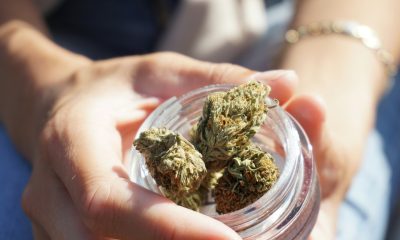Business
Could Spain’s minimum living income become the new model for fighting poverty?
COVID-19 has knocked the global economy badly and now governments are being forced to come up with novel ways to fight the economic crisis. Spain has long been a vocal voice in favor of ambitious minimum income programs and that continues today. The Spanish government’s “minimum living income” for low income families could become the gold standard for lifting people out of poverty.

According to the UN special reporter on extreme poverty and human rights the new “mínimo vital aprobado” (minimum living income) rule approved in Spain has the potential to become a key tool in fighting poverty and reducing inequality.
“The plan will provide much-needed relief to those in need and is a great example of how to develop an inclusive approach to tackling poverty and inequality,” said Olivier De Schutter.
If you want to find out more details about the new minimum vital income in Spain and to read the most important economic news
1.6 million poor people might benefit from the new minimum vital income
The national “minimum vital income” plan is expected to reach more than 850,000 households and benefit 1.6 million people living in extreme poverty. Beneficiary households would receive from $512 to $1,154 (€451.5 to €1,015), depending on the size of the family.
“The plan will provide much-needed relief to those in need and is a great example of how to develop an inclusive approach to tackling poverty and inequality,” said Olivier De Schutter.
“I encourage the Spanish government to continue to expand the coverage of this program and to reduce the eligibility and bureaucratic requirements,” the expert added.
De Schutter said that “public spending on social protection at this time is a crucial investment whose impacts will endure for years to come.” For that reason, he said, “it is essential that the plan be designed to reach as many people in need as possible.”
Bureaucratic hurdles seen as a major obstacle
“Eligibility conditions should not exclude particularly vulnerable people, such as undocumented or recently documented migrants, newly emancipated youth who were previously under public guardianship, homeless or permanently homeless people, or people with unrecognized disabilities who are unable to work,” he added.
De Schutter explained that bureaucratic hurdles can be a major obstacle for people in poverty who depend on government assistance for their survival. For that reason, “it is important to develop a robust scheme that allows enough flexibility when people experiencing extreme poverty cannot easily meet all the documentation requirements.
Despite the economic recovery experienced after the 2008-2011 crisis, inequality in Spain has remained well above European Union averages and regional minimum income schemes have been largely inadequate.
The former Special Rapporteur on extreme poverty and human rights, Philip Alston, raised the issue of the national minimum living income scheme at the end of his visit to Spain. The full report on his visit will be presented at the forty-fourth session of the Human Rights Council in June 2020.
The COVID-19 pandemic deeply affected Spain’s economy
Despite these potential shortcomings, Spain is certainly at the forefront of many ambitious, albeit controversial, policies. In the last week the left-leaning government, alongside Portugal and Italy, has begun lobbying for a European wide minimum income. While the idea is unlikely to gain widespread support, it is a strong indication of intention from the Mediterranean nation.
Like many European nations, Spain is grappling with the severe economic fallout of COVID-19. The country is heavily reliant on tourism and there are understandable fears that 2020 may turn out to be a lost year. COVID-19 has forced most European nations to adopt controversial measures to boost their economy. For example, the UK government has agreed to cover 80% of the salaries of workers placed on furlough.
We are likely to see a number of state aid plans come out of this crisis. The Spanish minimum living income is just one example of many. Only time will tell whether increased public spending will have the intended effect, or backfire.
__
(Featured image by Jarmoluk via Pixabay)
This article may include forward-looking statements. These forward-looking statements generally are identified by the words “believe,” “project,” “estimate,” “become,” “plan,” “will,” and similar expressions. These forward-looking statements involve known and unknown risks as well as uncertainties, including those discussed in the following cautionary statements and elsewhere in this article and on this site. Although the Company may believe that its expectations are based on reasonable assumptions, the actual results that the Company may achieve may differ materially from any forward-looking statements, which reflect the opinions of the management of the Company only as of the date hereof. Additionally, please make sure to read these important disclosures.
First published in Noticas ONU, a third-party contributor translated and adapted the article from the original. In case of discrepancy, the original will prevail.
Although we made reasonable efforts to provide accurate translations, some parts may be incorrect. Born2Invest assumes no responsibility for errors, omissions or ambiguities in the translations provided on this website. Any person or entity relying on translated content does so at their own risk. Born2Invest is not responsible for losses caused by such reliance on the accuracy or reliability of translated information. If you wish to report an error or inaccuracy in the translation, we encourage you to contact us.

-

 Fintech2 weeks ago
Fintech2 weeks agoRuvo Raises $4.6M to Power Crypto-Pix Remittances Between Brazil and the U.S.
-

 Impact Investing22 hours ago
Impact Investing22 hours agoMainStreet Partners Barometer Reveals ESG Quality Gaps in European Funds
-

 Biotech1 week ago
Biotech1 week agoEurope’s Biopharma at a Crossroads: Urgent Reforms Needed to Restore Global Competitiveness
-

 Africa4 days ago
Africa4 days agoFrance and Morocco Sign Agreements to Boost Business Mobility and Investment
























